NIL
Will NCAA Proposal to Grandfathering Athletes Help Approve House Settlement?
The NCAA and the commissioners of the power conferences are gambling that their new brief will hit the target in the House vs. NCAA settlement case. The brief, filed in the court of U.S. District Judge Claudia J. Wilken earlier this week, is geared to address her concerns about the potential damage done to athletes […]
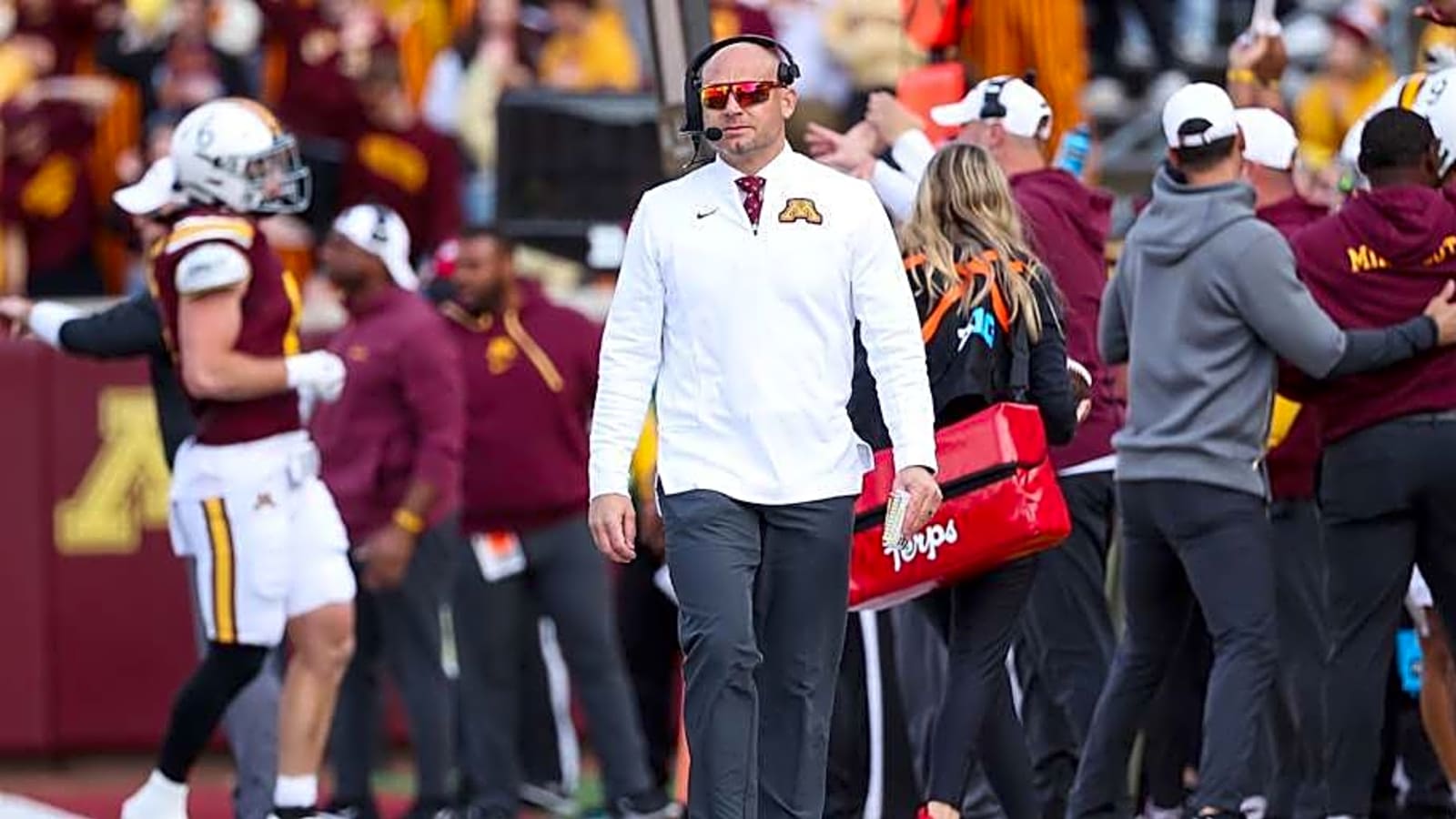
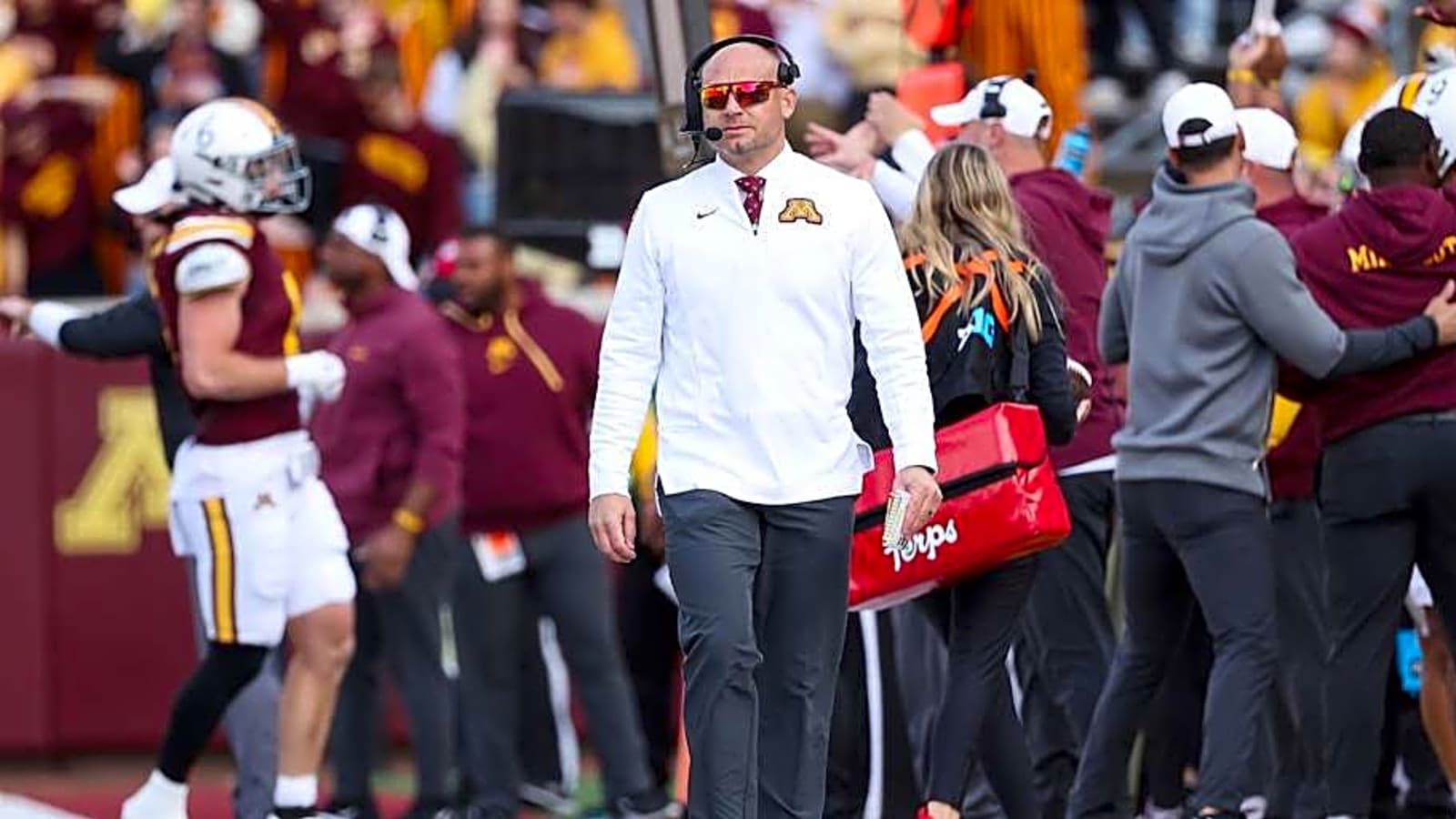
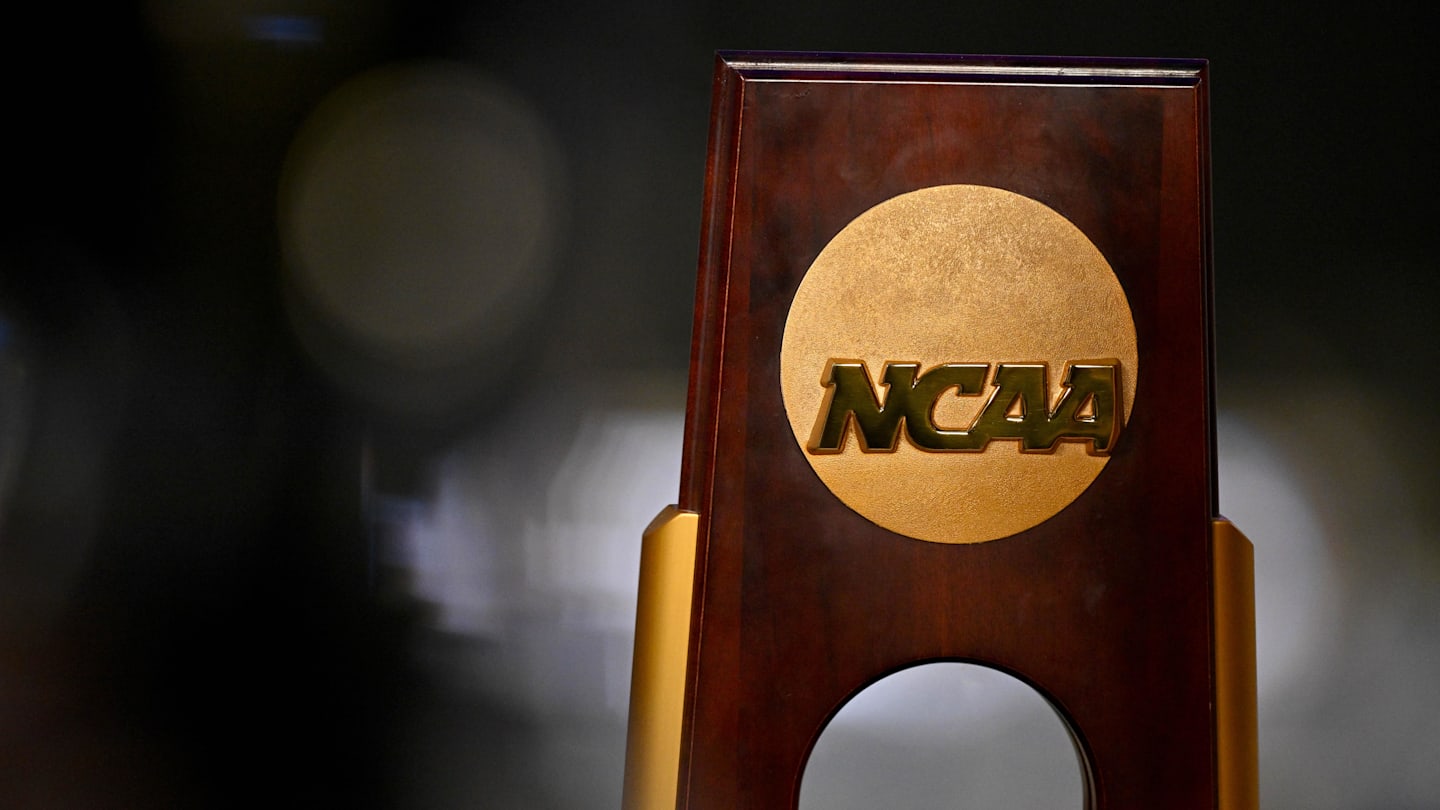
The NCAA and the commissioners of the power conferences are gambling that their new brief will hit the target in the House vs. NCAA settlement case.
The brief, filed in the court of U.S. District Judge Claudia J. Wilken earlier this week, is geared to address her concerns about the potential damage done to athletes that will be cut due to the roster limits imposed by the case.
Wilken has told attorneys on both sides that the approval of the case may rest on whether the NCAA and the power conferences address this concern to her satisfaction.
The brief outlines what NCAA and power conference attorneys have settled on as a framework to address Wilken’s concerns.
Per On3 Sports and other outlets, the proposal would allow schools that opt-into revenue sharing to phase in roster limits. It would also allow athletes who had their positions cut to be eligible to be reinstated, but it would be at the school’s discretion. If the athlete can’t return to their school, they can retain the grandfather status at a new school.
The NCAA worked with the plaintiff’s attorney, Jeffrey Kessler, to create the new language. Kessler said that the athletes in question would carry those exemptions their entire career. This would include athletes who have already been cut and prep athletes who were set to receive roster spots in 2025-26 but had them withdrawn due to the new roster limits.
They also would not count against the roster limits set to be imposed in the House settlement.
If approved, this would be a significant concession to athletes that, in some cases, have already been shown the door. Every school that is opting in is dealing with the issue. Clemson is a good example. Athletic director Graham Neff said the athletic department had 275 scholarships for all NCAA sports in 2024-25. The new settlement will allow the Tigers to fund 425 scholarships.
But the Tigers had 590 total athletes in 2024-25. In some cases, they’ve already told those athletes their spot is gone.
This compromise would give those athletes some recourse. But schools are not required to take them back. One, Notre Dame, has already vowed that they will take all released athletes back if they want to come back.
The lack of a requirement may give Wilken pause. The fact that Kessler was involved in negotiating the compromise may be enough for her to give the settlement final approval.
But it’s certainly better than the NCAA’s first proposal, which was to do nothing for the athletes that lost scholarships as a result of the settlement.
NIL
Urban Meyer believes the death sentence in college football no longer serves a purpose
The death penalty in college athletics refers to the NCAA’s power to ban a school from a specific sport for one or more years. There have been multiple instances of this occurring throughout the NCAA’s history. In 1952, the Kentucky men’s basketball team was handed down the death penalty for allegedly shaving points. Southwestern Louisiana […]
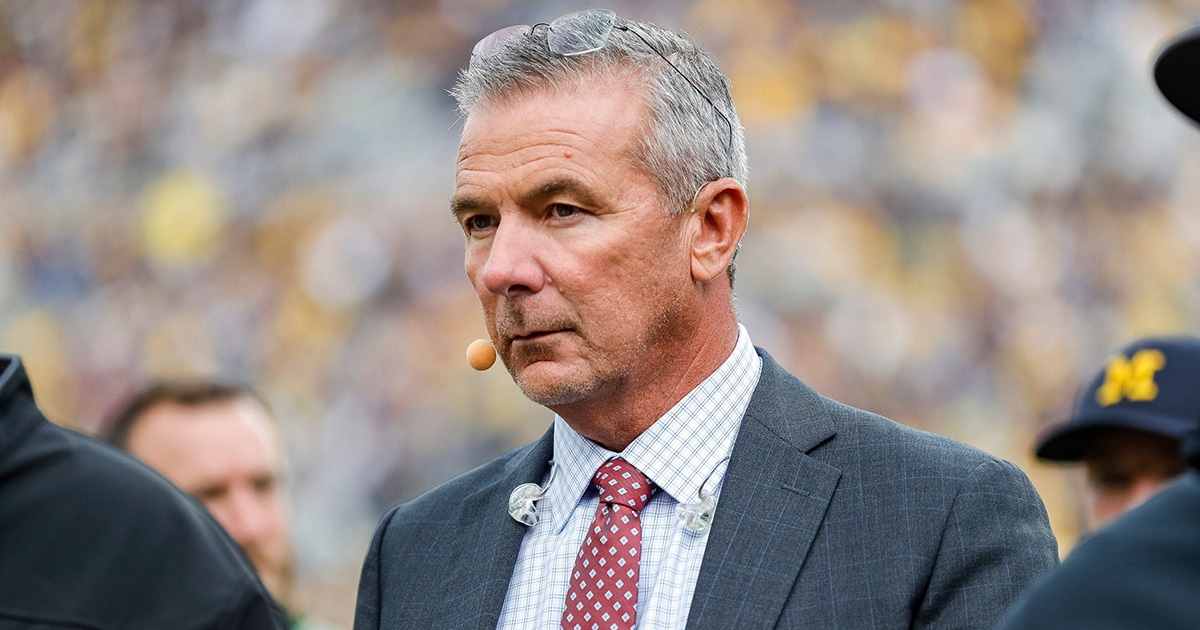
The death penalty in college athletics refers to the NCAA’s power to ban a school from a specific sport for one or more years. There have been multiple instances of this occurring throughout the NCAA’s history.
In 1952, the Kentucky men’s basketball team was handed down the death penalty for allegedly shaving points. Southwestern Louisiana was slapped with it in 1973. While several other instances have taking place over the years, the death penalty is most often connected to SMU‘s football program and how in 1987 the program was found out to have been paying its players.
Decades later, institutes may now pay their athletes directly and outside NIL earnings can help compensate them even further. With this in mind, former college football coach Urban Meyer explained the death penalty would be hard to impose within the current state of college athletics.
“No, not with the litigation, the amount of money that’s — think about the 70s. Now, you didn’t litigate back then,” Meyer said. “I don’t believe you did. Once again, I’m not an expert. I wasn’t around much, certainly not to the level of now. Back in the 70s, I mean, team could barely, you didn’t have a training table. Now, you’re talking about NIL and budgets and coaches making millions of dollars, players making money. So it was a much different animal back then.”
While Meyer believes it is much more difficult for imposing a death penalty in the modern age, it’s not impossible. Over 70 years later, the 1952 UK basketball team’s point shaving scandal is still worthy of such a punishment. With gambling becoming a commonplace among sports fans in recent years, there have been several instances of college and professional athletes getting suspended, dismissed or released due to their ties to gambling.
So far, there has been one instance of the death penalty being handed down to a school in the NIL era. In 2024, Notre Dame suspended its men’s swimming team for the entire athletic year for allegedly placing wagers among themselves regarding the results from their competitions. Athletes only bet in-house and only during their swimming meets. In addition, a group chat containing derogatory messages saw members fail to “treat one another with dignity and respect.”
There has been speculation that college athletics may move away from the NCAA in favor of adopting a governing body more equipped to handle its current landscape. What that means for the death penalty in college athletics, just like almost everything else in the ever-changing industry, remains to be seen.
NIL
NIL Gold Rush? College-Style Revenue Sharing and Direct Payments Are Still Off Limits for High School Athletes
Name, Image and Likeness (NIL) rights for athletes are on the rise and have forever blurred the lines between amateurism and professionalism in sports. What began as a fight to compensate college athletes for their contributions to the enormous revenues their schools and conferences were generating from massive media rights and sponsorship deals, merchandise sales […]
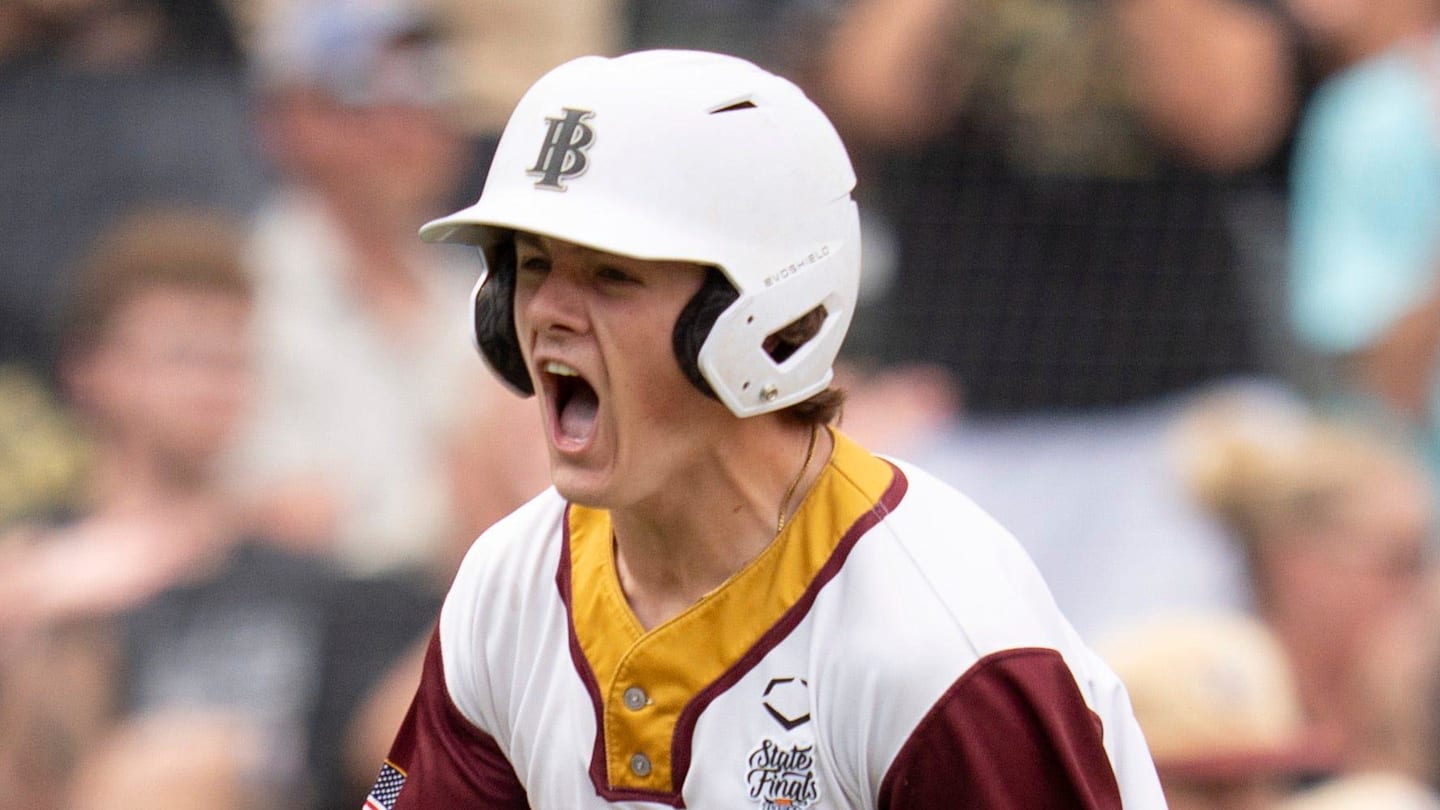
Name, Image and Likeness (NIL) rights for athletes are on the rise and have forever blurred the lines between amateurism and professionalism in sports.
What began as a fight to compensate college athletes for their contributions to the enormous revenues their schools and conferences were generating from massive media rights and sponsorship deals, merchandise sales and licensing agreements, and sold out venues, has evolved into direct payments to athletes, fueled by all-out bidding wars for recruits and transfers who enjoy virtual and perpetual free agency.
How NIL will be administered on the college level has been resolved, at least for now, following the final approval of a settlement, earlier this month, between the NCAA and lawyers representing members of three different class action lawsuits. The settlement allows schools to share as much as $20.5 million of their revenue with athletes and offer unlimited scholarships. It even set aside $2.8 billion to compensate eligible former college athletes, who did not have the benefit of NIL during their days as a student-athlete.
NIL rights have not stopped at the college level. The last four years have seen a steady movement towards NIL rights for high school athletes with 38 states and the District of Columbia establishing guidelines for high school athletes to benefit financially from their name, image and likeness. Four states – Indiana, Michigan, Montana and Ohio – are actively considering adopting similar guidelines, while only seven states prohibit NIL deals on the high school level.
Those states include Alabama, Hawaii, South Carolina, Texas, West Virginia, Wisconsin and Wyoming. Texas, however, recently enacted legislation that would allow high school athletes as young as 17 to sign NIL deals with colleges recruiting their services, but those benefits cannot begin until after the athlete completes his/her high school career.
Some envision a day when financial rights, similar to those granted in the NCAA settlement, will reach the high school level.
Former California high school athlete Dominik Calhoun — now at Boise State — filed a federal class-action lawsuit (Calhoun v. CIF) in Northern California, late last month. He alleges that the California Interscholastic Federation and several media companies, including SBLive Sports, have unlawfully restricted high school athletes from profiting off their name, image, and likeness. The lawsuit claims CIF’s policies violate antitrust laws by barring athletes from receiving compensation tied to broadcast rights, sponsorships, and ticket sales. It also challenges CIF’s transfer rules, which limit athlete mobility and earning potential.
One could never say never in the realm of sports and money, but it is unlikely high school athletes will ever receive the same NIL rewards of their college counterparts. For sure, some prep stars have inked endorsement deals for themselves but not one state has yet come close to allowing student-athletes to be paid directly by high schools or even be compensated for agreeing to attend a specific school.
In a recent article for the National Law Review, Professor Robert J. Romano, JD, LL.M explained some of the restrictions that are generally part of guidelines in every state where NIL benefits for high school athletes are allowed.
“With no national standards regarding NIL, most of the states that do allow for monetization rest upon their high school athletics governing bodies to formulate any and all rules and regulations,” wrote Professor Romano, who is an Associate Professor in the Division of Legal Studies at St. John’s University, where he has taught courses in Sport Law, Sport History, Current Topics in Sport, and Public Policy Issues in the Sport Industry.. “This leads to a variation of standards between states, but there are a few key restrictions present in most of these rules that high school athletes should be aware of.”
Romano cited the following points as being most common:
“In those states where NIL opportunities are allowed, high school athletes have a chance for a significant financial windfall,” added Romano, who played college football at Springfield College and, as a contract attorney, has negotiated employment contracts, public appearances, endorsement and sponsorship agreements for U.S. and international coaches, professional athletes, entertainers, broadcasters, and front office personnel. “However, athletes, their parents, and those advising them must ensure that any NIL agreement is in accordance with the applicable rules of their state, since non-compliance could lead to loss of eligibility to participate in athletic competition, which will certainly jeopardize any future athletic and financial opportunities.”
NIL
Kentucky baseball adds another high-profile transfer prospect
Nick Mingione has landed another high-profile prospect out of the transfer portal. On Thursday afternoon, On3’s Pete Nakos reported USC Upstate transfer outfielder Scott Campbell has committed to play for the Bat Cats. Campbell, who was named First-Team Big South in 2025, becomes the 10th portal addition — and third position player — for Kentucky […]
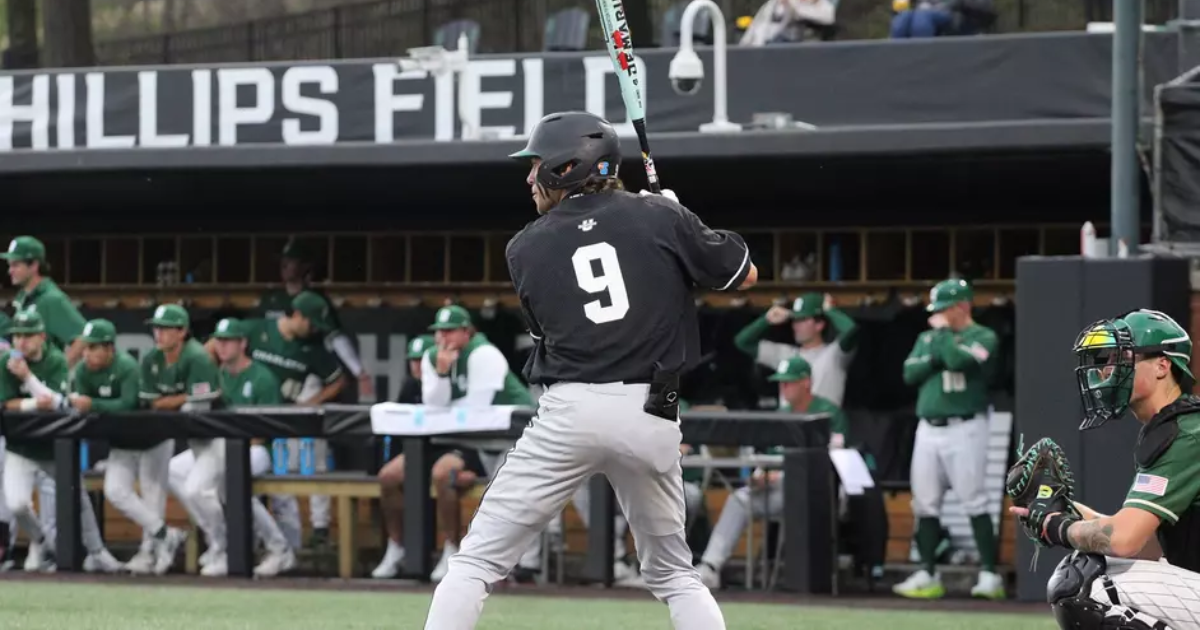
Nick Mingione has landed another high-profile prospect out of the transfer portal.
On Thursday afternoon, On3’s Pete Nakos reported USC Upstate transfer outfielder Scott Campbell has committed to play for the Bat Cats. Campbell, who was named First-Team Big South in 2025, becomes the 10th portal addition — and third position player — for Kentucky so far this offseason as Mingione reloads his roster ahead of the 2026 campaign.
“I think Kentucky plays a very gritty, fast-paced style of baseball,” Campbell told Derek Terry of Bat Cats Central. “They like guys that can do it all, whether that’s speed, defense, little bit of power, but that’s right up my alley. I think it gives me the best opportunity to not only fit in a program, but a program and coaching staff that kinda fits to what I need to be coached to.”
Campbell began his post-high school career at Chattanooga State Community College (2022-23) before moving to Charleston Southern in 2024 and then USC Upstate in 2025. The Macon, GA native started 45 games for the Spartans this past season, hitting for a .388 batting average with 11 doubles, 11 home runs, 54 RBI, a .622 SLG%, and a .498 OBP%.
Campbell is familiar with the Wildcats, having faced Kentucky during USC Upstate’s two-game run in the 2025 Clemson Regional earlier this month. He hit just 1-8 across his pair of NCAA tournament games, but the lone hit did come against UK in USC Upstate’s season-ending 7-3 loss. Campbell will have one year of college eligibility remaining.
Kentucky baseball’s 2026 transfer class
Despite losing 14 players to the portal from last season’s team (only one being ranked among 64Analytics’ top 250 transfers), Mingione is bringing in a 13-man high school class and still returns a key group of core pieces from 2025, headlined by Freshman All-American Tyler Bell. The likes of RF Ryan Schwartz, RHP Nate Harris, and LHP Ben Cleaver will also come back to Lexington for next season. Several more Wildcats, such as 2B Luke Lawrence and OF Carson Hansen, are eligible for the 2025 MLB Draft but can return for another college season.
Join KSR Plus! With a KSR Plus membership, you get access to bonus content and KSBoard, KSR’s message board, to chat with fellow Cats fans and get exclusive scoop.
NIL
Will McEntire posts heartfelt goodbye to Arkansas baseball
After six seasons at Arkansas, Will McEntire‘s time as a Razorback has come to a close. On Friday, the redshirt senior posted a heartfelt goodbye to Arkansas fans. “Arkansas, I’m not sure where to begin. You have forever changed my life,” McEntire wrote. “I got to do things that I never thought were possible as […]
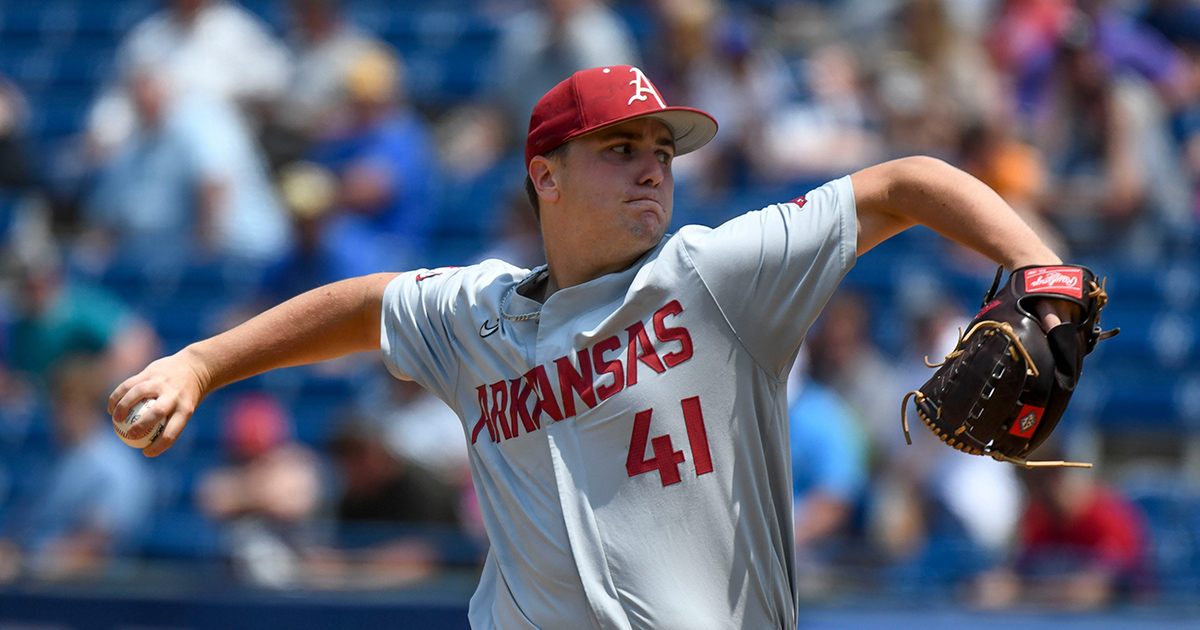
After six seasons at Arkansas, Will McEntire‘s time as a Razorback has come to a close. On Friday, the redshirt senior posted a heartfelt goodbye to Arkansas fans.
“Arkansas, I’m not sure where to begin. You have forever changed my life,” McEntire wrote. “I got to do things that I never thought were possible as a kid. Growing up a Razorback fan, this was always the dream. I never took it for granted, and I am forever grateful that I got to represent this great state. Being a Razorback has meant the world to me and has forever changed me.
“I met my soon-to-be wife, played under some of the greatest coaches, played with the absolute best teammates-who I consider my brothers-and, lastly, got to play for the most passionate fanbase in the country.
“Through ups and downs, I never wavered in my love for this school. I will proudly call myself a Razorback for life and appreciate every single one of you for what you have done in this journey of mine. Forever and always, Wooo Pig.”
McEntire made 17 appearances this season, totaling 25.1 innings on the mound. He posted a 2.84 ERA and 29 strikeouts compared to just four walks.
In his six years with the program, McEntire amassed 82 appearances and a 17-5 record. He collected 233 career strikeouts and a 4.08 ERA. It’s worth noting that McEntire didn’t play during his second season in Fayetteville and redshirted instead.
McEntire’s final appearance at Arkansas was in the Razorbacks’ 7-3 win over UCLA in the College World Series. McEntire held down the mound for one inning but was taken out of the game after giving up two hits and three runs.
Just one day later, Arkansas’ season ended in devastating fashion. The Razorbacks led LSU 5-3 with two outs in the bottom of the ninth inning. However, the pressure was on Arkansas, with two LSU runners on base.
The Razorbacks collapsed in the clutch. Arkansas left fielder Charles Davalan misjudged a line drive and failed to make the game-winning catch, allowing LSU to score two runs and tie the game.
On the next at-bat, LSU’s Jared Jones hit a laser toward center field. The ball bounced off the top of Arkansas’ Cam Kozeal‘s glove, and LSU ultimately escaped with the win. After the game, Arkansas head coach Dave Van Horn reflected on the team’s season.
“It’s hard to say goodbye,” Van Horn said. “I’m not good at saying goodbyes anyway. Great team, fun team, hard-working team. And probably just ‘team.’ Man, they were a team. You could tell by how emotional they were after the game.
“It was a lot of heartbreak, maybe because we lost the game, but honestly, probably because the season’s over and they don’t get to be around each other every day. So proud of them. Proud of the University of Arkansas.”
NIL
Wisconsin, NIL collective sue Miami, allege tampering to land football recruit
The University of Wisconsin and its NIL collective VC Connect filed a joint lawsuit on Friday against the University of Miami alleging it knowingly induced one of the Badgers’ football players to abandon a lucrative name, image and likeness contract to play for the Florida this upcoming season. Allegations of tampering rarely get to this […]
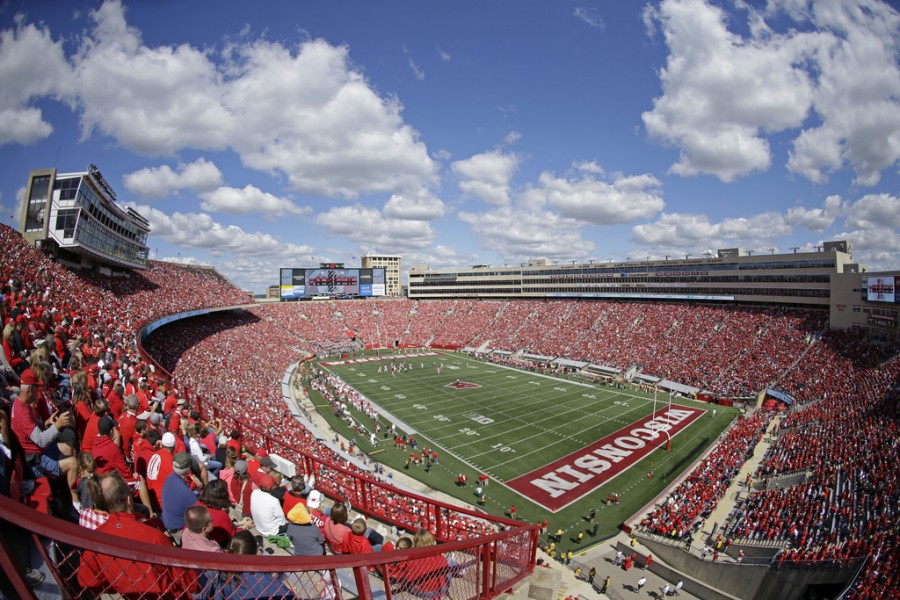
The University of Wisconsin and its NIL collective VC Connect filed a joint lawsuit on Friday against the University of Miami alleging it knowingly induced one of the Badgers’ football players to abandon a lucrative name, image and likeness contract to play for the Florida this upcoming season.
Allegations of tampering rarely get to this level and the 23-page lawsuit, which was filed in state court in Wisconsin and obtained by The Associated Press, is unusual. Depending on its resolution, it could have a a wider impact on future NIL deals across college athletics.
The player in question in the filing is referred to only as “Student-Athlete A.” But the case summary describes facts that line up with the situation involving cornerback Xavier Lucas, who last December announced his plans to enter the transfer portal.
Shortly afterward, Darren Heitner, who has been representing Lucas, indicated that Wisconsin was refusing to put Lucas’ name in the portal and that it was hindering his ability to talk with other schools. In January, Heitner announced that Lucas would be playing for Miami this fall.
The situation is fallout from the rapid changes engulfing college athletics, specifically a combination of two things: Athletes went to court and won the ability to transfer with much more freedom and the 2021 NCAA decision clearing the way for them to strike NIL endorsement deals now worth millions of dollars. That has changed the recruiting landscape and forced the issue of contracts and signed commitments to the fore.
“Indeed, student-athletes’ newfound NIL rights will be rendered meaningless if third parties are allowed to induce student-athletes to abandon their contractual commitments,” a portion of the lawsuit reads.
Wisconsin said in January that it had credible information that Miami and Lucas made impermissible contact with each other before the former Badgers cornerback decided to transfer.
Wisconsin and VC Connect allege that the inducement for Lucas to attend Miami happened within days of him entering his NIL agreement to play for the Badgers, and that they incurred substantial monetary and reputational harm. The lawsuit seeks unspecified monetary damages and “a declaration that Miami’s conduct directed towards Student-Athlete A constituted tampering.”
A message left with the University of Miami seeking comment was not immediately returned. In a text message Friday, Heitner declined to comment on the lawsuit but he said that Lucas still plans to attend Miami and play football.
Wisconsin said it had the support of its leadership and the Big Ten Conference in filing the lawsuit, noting its commitment to “ensuring integrity and fundamental fairness in the evolving landscape of college athletics.”
“While we reluctantly bring this case, we stand by our position that respecting and enforcing contractual obligations is essential to maintaining a level playing field,” the statement said. “In addition to our legal action, we will continue to be proactive to protect the interests of our student-athletes, our program and the broader collegiate athletics community.
Lucas, who is from Pompano Beach, Florida, had 12 tackles, an interception and a sack as a freshman for Wisconsin last season.
Heitner said that Lucas hasn’t received any money from Wisconsin and therefore owes no money to the school. Heitner also argued that Wisconsin had violated an NCAA bylaw by not entering Lucas into the transfer database within two business days of the player’s request.
Wisconsin issued a statement at the time saying it hadn’t put Lucas’ name in the portal because he had entered a two-year binding NIL agreement.
In April, the surprise transfers of brothers Nico and Madden Iamaleava from Tennessee to UCLA prompted fresh questions about contracts and buyouts.
Nico Iamaleava, who led Tennessee to the College Football Playoff last season, walked away from a reported $2.4 million NIL contract. Arkansas freshman quarterback Madden Iamaleava entered the portal after spring practices wrapped up.
Arkansas athletic director Hunter Yurachek released a statement indicating he would support efforts by the Razorbacks’ NIL collective to enforce buyout clauses in athlete contracts. Iamaleava reportedly had a contract valued at $500,000 upon signing with Arkansas.

FILE – Camp Randall Stadium is seen during an NCAA college football game between Wisconsin and Miami of Ohio, Sept. 12, 2015, in Madison, Wis.
http://accesswdun.com/article/2025/6/1292161/wisconsin-nil-collective-sue-miami-allege-tampering-to-land-football-recruit
© Copyright 2015 AccessNorthGa.com
All rights reserved. This material may not be published, broadcast, rewritten, or redistributed without permission.
NIL
Wisconsin sues Miami for poaching player under NIL contract
The University of Wisconsin and its NIL collective VC Connect filed a joint lawsuit on Friday against the University of Miami alleging it knowingly induced one of the Badgers’ football players to abandon a lucrative name, image and likeness contract to play for the Florida-based school this upcoming season. The 23-page suit, which was filed […]
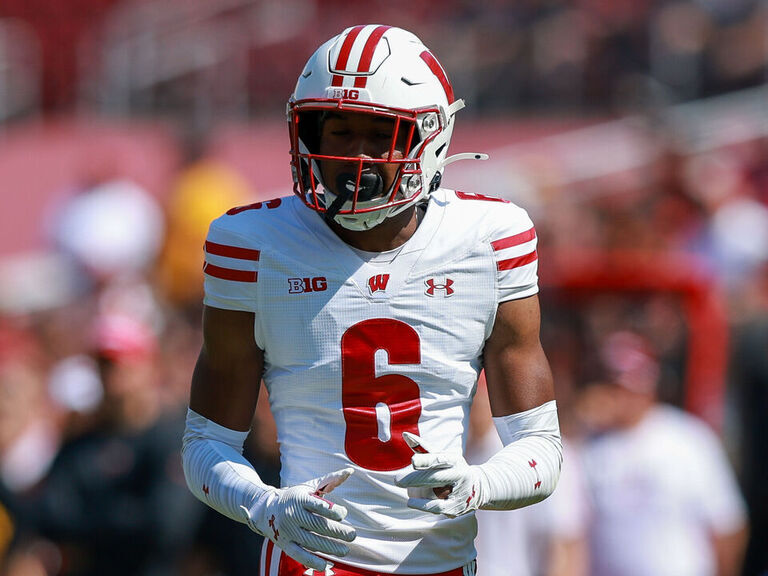
The University of Wisconsin and its NIL collective VC Connect filed a joint lawsuit on Friday against the University of Miami alleging it knowingly induced one of the Badgers’ football players to abandon a lucrative name, image and likeness contract to play for the Florida-based school this upcoming season.
The 23-page suit, which was filed in state court in Wisconsin and obtained by The Associated Press, could have a a wider impact on future NIL deals across college athletics.
The player in question in the filing is referred to only as “Student-Athlete A.” But the case summary describes facts that line up with the situation involving cornerback Xavier Lucas, who last December announced his plans to enter the transfer portal.
Shortly afterward, Darren Heitner, who has been representing Lucas, indicated that Wisconsin was refusing to put Lucas’ name in the portal and that it was hindering his ability to talk with other schools. In January, Heitner announced that Lucas would be playing for Miami this fall.
The situation is fallout from the rapid changes engulfing college athletics, specifically a combination of two things: Athletes went to court and won the ability to transfer with much more freedom and the 2021 NCAA decision clearing the way for them to strike NIL endorsement deals now worth millions of dollars. That has changed the recruiting landscape and forced the issue of contracts and signed commitments to the fore.
“Indeed, student-athletes’ newfound NIL rights will be rendered meaningless if third parties are allowed to induce student-athletes to abandon their contractual commitments,” a portion of the lawsuit reads.
Wisconsin said in January that it had credible information that Miami and Lucas made impermissible contact with each other before the former Badgers cornerback decided to transfer.
Wisconsin and VC Connect allege that the inducement for Lucas to attend Miami happened within days of him entering his NIL agreement to play for the Badgers, and that they incurred substantial monetary and reputational harm. The lawsuit seeks unspecified monetary damages and “a declaration that Miami’s conduct directed towards Student-Athlete A constituted tampering.”
A message left with the University of Miami seeking comment was not immediately returned. In a text message Friday, Heitner declined to comment on the lawsuit but he said that Lucas still plans to attend Miami and play football.
Wisconsin said it had the support of its leadership and the Big Ten Conference in filing the lawsuit, noting its commitment to “ensuring integrity and fundamental fairness in the evolving landscape of college athletics.”
“While we reluctantly bring this case, we stand by our position that respecting and enforcing contractual obligations is essential to maintaining a level playing field,” the statement said. “In addition to our legal action, we will continue to be proactive to protect the interests of our student-athletes, our program and the broader collegiate athletics community.
Lucas, who is from Pompano Beach, Florida, had 12 tackles, an interception and a sack as a freshman for Wisconsin last season.
Heitner said that Lucas hasn’t received any money from Wisconsin and therefore owes no money to the school. Heitner also argued that Wisconsin had violated an NCAA bylaw by not entering Lucas into the transfer database within two business days of the player’s request.
Wisconsin issued a statement at the time saying it hadn’t put Lucas’ name in the portal because he had entered a two-year binding NIL agreement.
In April, the surprise transfers of brothers Nico and Madden Iamaleava from Tennessee to UCLA prompted fresh questions about contracts and buyouts.
Nico Iamaleava, who led Tennessee to the College Football Playoff last season, walked away from a reported $2.4 million NIL contract. Arkansas freshman quarterback Madden Iamaleava entered the portal after spring practices wrapped up.
Arkansas athletic director Hunter Yurachek released a statement indicating he would support efforts by the Razorbacks’ NIL collective to enforce buyout clauses in athlete contracts. Iamaleava reportedly had a contract valued at $500,000 upon signing with Arkansas.
___
Get poll alerts and updates on the AP Top 25 throughout the season. Sign up here. AP college football: https://apnews.com/hub/ap-top-25-college-football-poll and https://apnews.com/hub/college-football
-
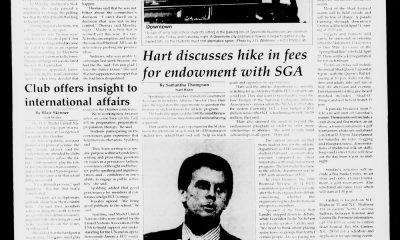
 High School Sports2 weeks ago
High School Sports2 weeks agoParents Speak Out As Trans Pitcher Throws Shutout In MN State Quarterfinals
-

 Professional Sports2 weeks ago
Professional Sports2 weeks ago'I asked Anderson privately'… UFC legend retells secret sparring session between Jon Jones …
-

 Health2 weeks ago
Health2 weeks agoOregon track star wages legal battle against trans athlete policy after medal ceremony protest
-
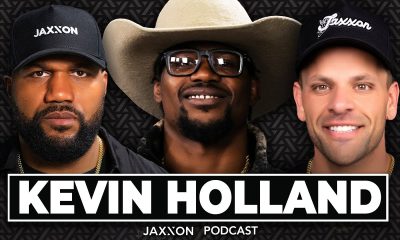
 Professional Sports2 weeks ago
Professional Sports2 weeks agoUFC 316 star storms out of Media Day when asked about bitter feud with Rampage Jackson
-

 NIL3 weeks ago
NIL3 weeks agoMen's college basketball Top 25 reset
-

 Motorsports1 week ago
Motorsports1 week agoNASCAR Weekend Preview: Autódromo Hermanos Rodríguez
-
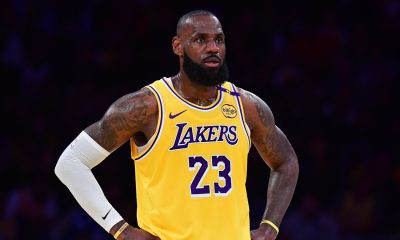
 Rec Sports3 weeks ago
Rec Sports3 weeks ago2x NBA All-Star Reacts to Viral LeBron James Statement
-

 Social Media3 weeks ago
Social Media3 weeks agoControversial Athletics Gender Dispute Goes Viral After Riley Gaines Lashes Over Authorities
-
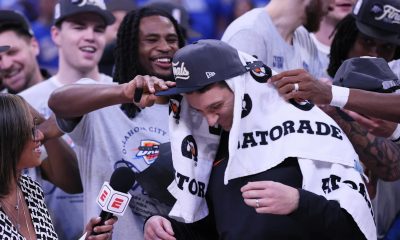
 College Sports3 weeks ago
College Sports3 weeks agoOKC’s Mark Daigneault knows what it takes to win championships. His wife has won a ton of them
-

 Motorsports3 weeks ago
Motorsports3 weeks agoCorey LaJoie to make nine NASCAR Truck Series starts with Spire Motorsports
































